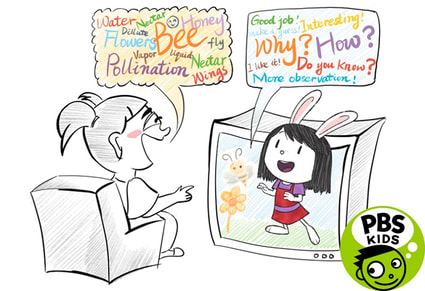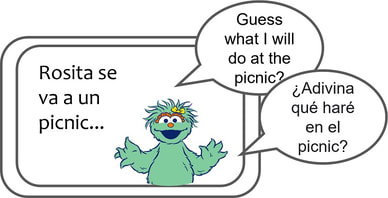Research Projects
Conversational Videos for STEM Learning
In this line of research, we integrate conversational agents into STEM oriented television shows to allow children to directly speak with the show's main characters. The conversation is designed to prime children to engage in observation, prediction, pattern identification, and problem solving.
|
Dialogic Reading with Conversational Agents
In this project, we have designed a Conversational Agent (CA)-based audio story using Google’s voice-driven interface (Google Assistant). Our study confirmed that dialogue helps learning--children in both dialogue conditions (with a human partner or a conversational agent) learned more than those without dialogue.
|
Scalable Conversational AI for Literacy Development
The objective of this project is to evaluate the feasibility of using automatic question-answer (QA) generation to facilitate the learning and assessment of narrative comprehension skills, a critical component of reading proficiency. This innovation can enable large-scale, cost-effective development and production of learning and assessment resources.
|



